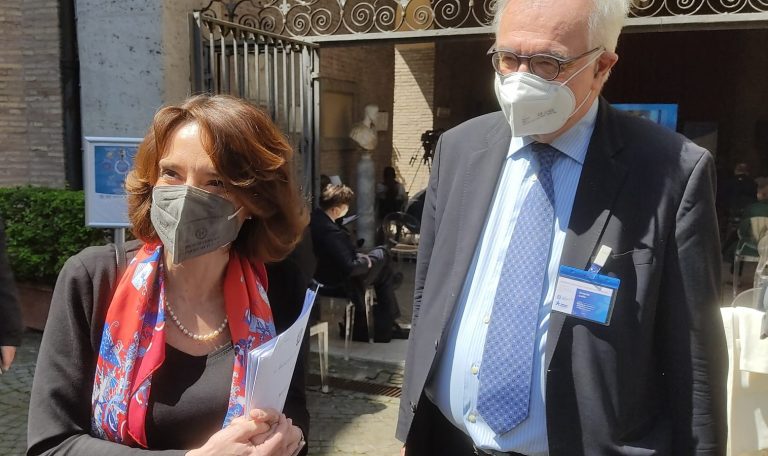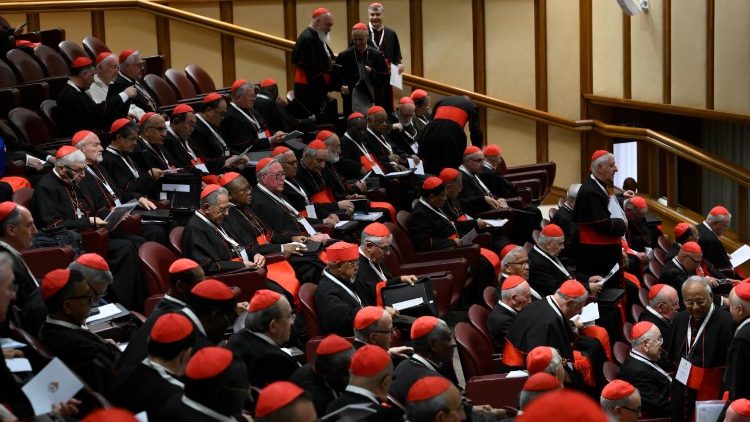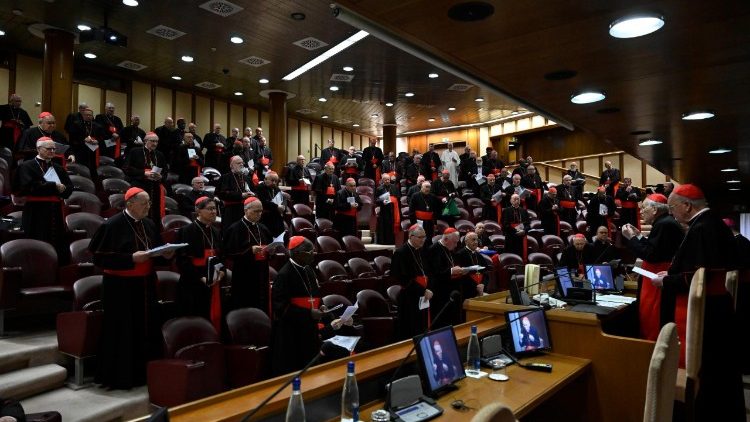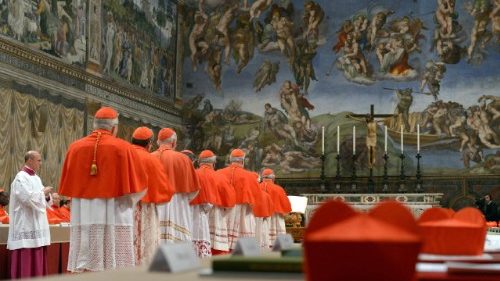Italy’s Holy See Embassy Addresses Pedophilia
Pedophilia, Decisive Listening, and Support to Families

Italy’s Embassy to the Holy See hosted a meeting on the prevention and fight against pedophilia, which gathered institutions, the media, ecclesiastical authorities, and national and international experts, on the occasion of the National Day against Paedophilia, an event organized by Telefono Azzurro [Blue Telephone], entitled “The Dignity of Children and Adolescents in the Time of COVID.” The issue of abuses “is a complex phenomenon, made all the more difficult by the digital development,” said the President of the Association, Ernesto Caffo, who stressed the necessity to “support families with a shared commitment for a new dimension of support and accompaniment.”
Listening and Rapid Intervention
In particular, Caffo highlighted the need for minors’ listening areas — “signaling poles in which to ask for help.” It is an action that has been carried out for some time by Telefono Azzurro, and that young people use increasingly, but “the problem is how to intervene with the necessary speed. We have made agreements with providers to remove improper images, especially of sexting and sextortion, from the network. The complaint is important but not enough.”
Support to Victims
There is the aspect of help to the victims. “Many times these experiences are profoundly detrimental to boys dignity” and, therefore, “it is fundamental to provide the necessary instruments to boys, to form them but also to educate the adults so that they can be by their side and, finally, to have norms that link the large companies to rules to avoid children being the object of situations at risk.”
In his greeting, Ambassador Sebastiani stressed the “importance of norms to fight this phenomenon and accompany the victims.”
Role of the Family
The role of the family is essential, as Minister Elena Bonetti highlighted. “ It is necessary to recognize that families are the place of experience of the littlest ones and they are called to exercise an educational function in which, however, all our community must take part with co-responsibility, from the school to the world of non-formal education of the third sector. Unfortunately, sometimes families are the place of violence suffered by minors, and all the more necessary is a network of communities that is able to prevent and form those positive relations between adults and little ones on which a new social alliance must be founded.”
How to intervene concretely? “We are doing so through the reform of the Family Act, which makes use, on the economic plane, of the universal single check, but also by promoting the educational role of families, guaranteeing services and territorial networks necessary to support families in the educational task,” answered the Minister, who will soon announce the launch of the National Plan of Childhood and Adolescence, which will have education at the center of the collective commitment.
There Is Little Prevention of Pornography, Says Archbishop Zuppi
“Isolation has accentuated the difficulties of those that suffered so much heaviness,” said in a connection from Bologna Archbishop Matteo Zuppi. “But the pandemic is an occasion not to be missed. We must find a way to listen to them. The signs of hardship are evident; I’m thinking of the brawls in the Square or the increase of cases of self-harm.” The Cardinal also reflected on the plague of pornography “without engaging in moralism.” It is a phenomenon that “conditions choices, attitudes, adolescents’ ways. And, in face of this, there is “very scarce prevention. It is a “great challenge” because it is “accessible material to minors via the Internet with heavy consequences on minors’ psyche.
The Action of the Local Police
The Day witnessed numerous interventions. Under-Secretary Scalfarotto illustrated the numbers of the fight against pedophilia and paedo-pornography online, which unfortunately is growing. The action of the local police is imperative with continuing monitoring of the networks. In relation to 2019, last year with the pandemic, cases treated by the National Center of the Fight against Paedo-pornography increased by 132%. There were 77 percent more cases of cyber-bullying, solicitation and sextortion registered. Worrying is the lowering of the age of the victims with 14 cases in a band lower than 13 years and four cases of nine-year-old minors. The episodes of online solicitation increased from 26 to 41 cases.
The strategy of the fight against pedophilia is based on four cornerstones: intensification of the monitoring, increase of collaboration with the social media, projects geared to educational interventions in schools, and more intense relations with the international police. Among the results inserted in the Black List are 14 operations to hit pedophile groups and subjects. Added to this is a prevention action, with different formative campaigns in schools and for adults.
The Child Brides Phenomenon
Carla Garlatti, Guarantor Authority for Childhood and Adolescence, also put the accent on prevention “because once abuse is suffered it’s difficult to recover.” In this framework, the impact of the pandemic ”was tremendous because 62% of the ogres are in the home. And with the lockdown the victims found themselves living with their jailers without safety valves.”
The former Minors’ Judge also inserted in this situation the phenomenon of “child brides: I’m unable not to see in this a form of pedophilia.” It is a phenomenon that “doesn’t regard foreign countries only but also Italy.” For immigration (and she mentioned the case of a girl of Bangladesh who was supposed to be the bride of a forty-year-old of her country of origin) but also for the shantytowns of the city in which “10-12 year-old-girls come to marry and regard this as a form of protection that they don’t think they will find in education.”
Cardinal Parolin’s Greeting
The second part of the meeting was dedicated to the main action put into practice in the field, at the international level, to reinforce the fight against offline and online abuses. It was opened by a message of the Vatican Secretary of State.
Cardinal Parolin expressed satisfaction over an initiative geared to reaffirming “the inestimable value of the life and the dignity of the littlest and the most vulnerable,” and the “duty of a more incisive approach in the education of young generations, for a radical rejection of any violence and tyranny to the harm of minors and to an ever more correct use of the means of communication.”
The rest of the works in English witnessed the contributions, among others, of Cardinal Sean O’Malley, member of the Pontifical Commission for the Protection of Minors, and of Monsignor Lorenzo Ghizzoni, Archbishop of Ravenna and Cervia, President of the National Service for the Protection of Minors of the Italian Episcopal Conference (CEI).
Translation by Virginia M. Forrester
Related

On the Road to the Conclave: The Church Prepares to Elect the New Pope on May 7
Alberto Ramírez
29 April, 2025
2 min

What are the Congregations before the Conclave?
Exaudi Staff
29 April, 2025
3 min

The Conclave will begin on May 7
Exaudi Staff
28 April, 2025
1 min

Cardinal Parolin at the Novendalia Mass: “Mercy leads us to the heart of faith”
Exaudi Staff
27 April, 2025
8 min
 (EN)
(EN)
 (ES)
(ES)
 (IT)
(IT)

